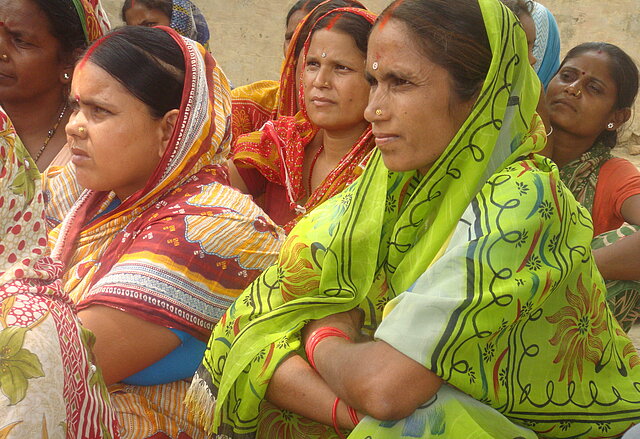The figures reported by the Duncan Hospital's patient admission department were alarming: more and more patients are coming for treatment after a failed suicide attempt. The causes are mostly depression as a result of poverty and conflicts in the family, often in connection with alcohol abuse, forced marriages of young girls, and domestic violence.
Dr Vandana Kanth, a medical doctor, therefore developed the project "Nayi Roshni" - "New Light" - together with DIFÄM. The aim is to prevent mental illness and to provide treatment close to home. To this end, village health workers and volunteers are trained in mental health and on the risks of mental illness and its symptoms. Afterwards, they educate the communities in groups about mental illness and also address sensitive issues such as the financial burden of a dowry and the favouritism of boys in medical care. "When a girl falls ill, people first wait for a few days to see if she survives. Only then do they buy a medicine from the village pharmacy or go to a health post," says DIFÄM partner Vandana Kanth. On the other hand, if a son falls ill, medical help is quickly sought at a health station or hospital. For example, three times as many boys are admitted to the Duncan Hospital as girls.
When the groups hear about family conflicts, they visit the families and try to mediate. They refer people at risk of suicide to hospital or take them there themselves.
The prevention of violence, especially gender-based violence, is another focus of the project. The consequences of violence are very serious, especially for children, young people and women, and are among the most frequent causes of psychological problems. The people in the villages are made aware of this through posters, but also in discussions.
Due to the project activities, the number of mentally ill people coming in for treatment has increased greatly. Therefore, Duncan Hospital recruited a psychiatrist - the first in the whole region - so that the mentally ill can now be treated close to home. "But mental health care and prevention is a community task that should not take place mainly in the hospital, but in the villages or neighbourhoods where people live," says DIFÄM partner Dr Vandana Kanth. "People with mental health problems do not get better through medication alone. While these are an important part of treatment, especially for severe psychiatric illnesses, human relations and social inclusion play a central role in improving symptoms and achieving recovery."
In the meantime, suicide attempts in the region have decreased, although suicides in the whole of India have increased by ten percent - also due to the economic and social consequences of the Corona pandemic.


